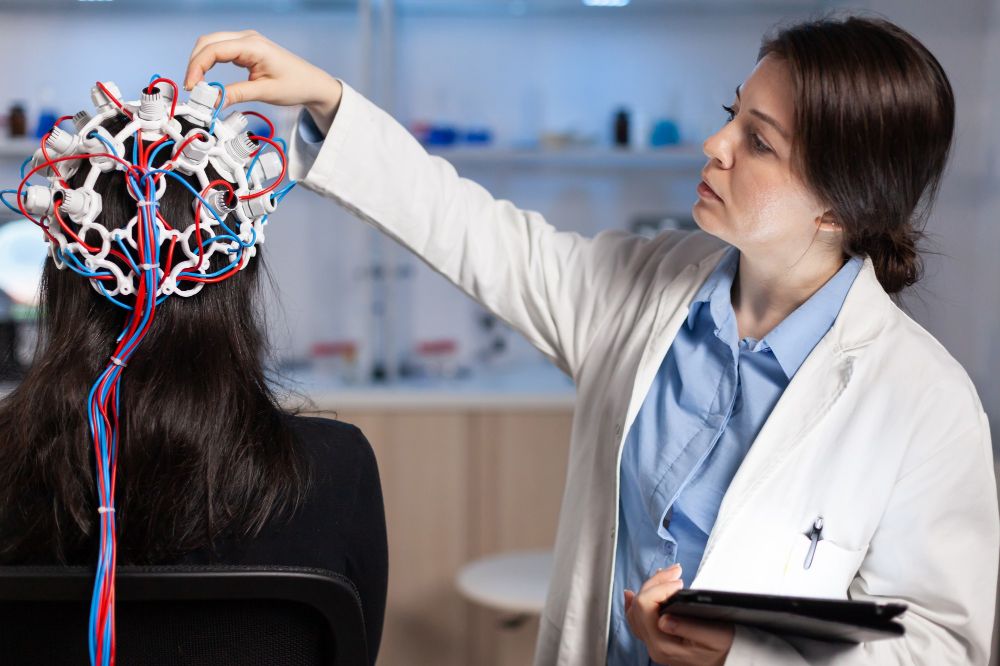In the field of cognitive psychology, fascinating discoveries, and new ideas are always appearing. Researchers are unraveling the secrets of the human mind offering hope for better comprehension and improved cognitive skills. This blog delves into recent breakthroughs that shed light on how cognitive psychology affects our lives.
Table of Contents
- Cognitive Skills
- Evolution of Cognitive Psychology
- Cognitive Psychology at Work: AI Dementia Detection
- Cognitive Psychology: Psychedelics & Enhancement
- Cognitive Psychology Breakthrough: Memory Reversal
1. Cognitive Skills:
Minds at Work: Cognitive Skills in Action
- Attention Example: Navigating Focus: Driving with Awareness
- Memory Example: Unveiling the Past: Remembering Names
- Decision-making Example: Morning Dilemma: Choosing Breakfast
- Language Processing Example: Conversational Prowess: Understanding Spoken Words
- Problem-solving Example: Repairing the Puzzle: Fixing a Broken Lamp
2. Real-World Applications:
Cognitive Psychology Beyond the Mind
- Education Example: Tailoring Education: Adapting to Learning Styles
- Business Example: Persuasion Science: Crafting Effective Marketing
- Law Enforcement Example: Solving Crimes with Psychology: Witness Interviews and Suspects
- Healthcare Example: Healing the Mind: Advancements in Cognitive Disorder Treatments
3. Evolution of Cognitive Psychology:
The Shaping of Tomorrow’s Minds
- Technological Advancements Example: The Mind Unveiled: Brain Imaging and Machine Learning
- Therapeutic Innovations Example: Healing with Thought: Cognitive Behavioral Therapy and Mindfulness
- Expanding Horizons Example: Rise of the Machines: Cognitive Psychology Meets AI and Robotics
Cognitive Psychology at Work: AI Dementia Detection

Researchers at the University of California Berkeley have introduced a groundbreaking tool called the Deep Learning Dementia Detection (DL2D) model. This AI-powered tool analyzes brain MRI scans to identify subtle signs of dementia. DL2D shows promise for early diagnosis and potential interventions; hence human clinical trials are on the horizon offering hope for improved cognitive health.
Cognitive Psychology: Psychedelics & Enhancement
A study in nature neuroscience piques interest in psychedelics; hence especially psilocybin from magic mushrooms. It boosts cognition; therefore even in mild cognitive impairment. Although reshaping our view of psychedelics and promoting further therapeutic research the consequence is a profound shift in our understanding of their potential. Moreover, this research holds promise for groundbreaking advancements in mental health treatment.
Cognitive Psychology Breakthrough: Memory Reversal

At UCLA’s lab, scientists introduced NB32 a revolutionary drug to counter memory loss. NB32 targets a brain protein linked to memory formation showing great potential in mouse trials. Human clinical tests are approaching offering hope for cognitive disorder sufferers.
Exercise: A Shield Against Aging
Neurology Journal reveals strong proof: regular exercise guards against cognitive decline; hence this study emphasizes exercise’s brain-boosting benefits and its role in reducing dementia risk. Surprisingly although older adults who stay active show bigger brains and better cognitive function the consequence is a compelling argument for incorporating exercise into daily routines. Moreover, this research highlights the importance of physical activity in preserving brain health as we age.
VR Therapy with Brain HQ

At the University of Southern California experts launched Brain HQ an innovative virtual reality therapy against cognitive decline; hence by immersing users in a simulated world, Brain HQ helps sharpen cognitive skills. Remarkably this therapy successfully boosts cognitive function in older adults with mild cognitive impairment. Moreover, the consequence is a promising development in the field of cognitive health and underscores the potential of virtual reality as a therapeutic tool.
Beyond these remarkable research findings, there are practical steps individuals can take to boost their cognitive health; hence these steps are crucial for maintaining mental well-being and vitality.
- Exercise Regularly: Engage in physical activity as it has been shown to enhance cognitive function across all age groups.
- Maintain a Balanced Diet: Eating well supports brain health and cognitive function.
- Prioritize Sleep: Adequate sleep is essential for cognitive well-being.
- Mental Stimulation: Challenge your mind through activities like learning new skills or engaging in puzzles and games.
- Manage Stress: Implement healthy stress management techniques such as exercise relaxation and seeking social support.
In cognitive psychology discoveries and choices promise cognitive enhancement and well-being. Moreover, explore the fascinating world of the human mind. Stay tuned for more.
Conclusion
Cognitive psychology with its profound insights into the workings of the human mind stands as a beacon of understanding in our ever-evolving world. It reveals the extraordinary capacities of attention memory decision-making language processing and problem-solving that shape our daily lives. Moreover, these cognitive skills are the threads that weave the fabric of our existence enabling us to navigate a complex and dynamic reality.











